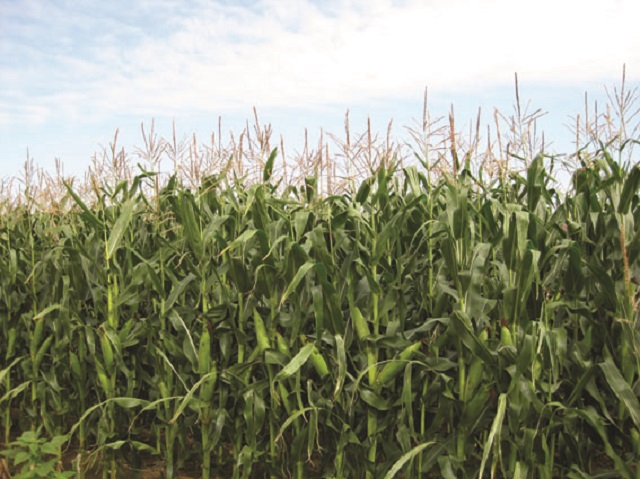
The Sunday News

 Arda Jotsholo Estate despite some of its crop being attacked by fall armyworm, is expected to harvest its projected maize yield
Arda Jotsholo Estate despite some of its crop being attacked by fall armyworm, is expected to harvest its projected maize yieldDumisani Nsingo, Senior Farming Reporter
MATABELELAND North Province’s biggest irrigation scheme, Arda Jotsholo Estate, which is under the Command Agriculture Programme is set to achieve its anticipated maize yield target despite some of its crop being attacked by fall armyworm.
Estate manager of the Lupane- based irrigation scheme Mr Ndodana Ncube said concerted efforts were being made to fight the devastating pest since its outbreak late in November last year.
The fall armyworm (Spodoptera frugiperda) is part of the order of Lepidoptera and is the larval life stage of a fall armyworm moth. It is regarded as a pest and can wreak havoc in crops if left to multiply. Its name is derived from its feeding habits.
Native to America, the caterpillars mainly attack maize crops. They will eat everything in an area, and once the food supply is exhausted, the entire “army” will move to the next available food source.
“We managed to crop 360 hectares but we were affected by an outbreak of fall armyworm although we are fighting it by spraying every week. The maize is recovering as we also continuously apply fertiliser enhancing its growth vigour but the damage is visible as most of the crop’s leaves have holes,” said Mr Ncube.
The 519 hectare estate is one of the many irrigation schemes in Matabeleland North that was selected for the Command Agriculture Pogramme and has since been allocated inputs.
Of the 360 hectares cropped, 188 hectares were planted at the Estate’s 200 hectares’, Block I field, while the other 172 hectares of maize was grown in Block II.
“Part of our crop in low lying areas has been affected by water logging due to incessant rains and this will most likely affect its growth rate but we are still optimistic of achieving our set target of seven tonnes per hectare.
“Before we received much rains we used to water maize in Block II using travelling irrigators. The first crop which was put down in November is at grain formation while the one which was planted in December is at the tasselling stage,” Mr Ncube said.
Block I which was previously under winter wheat crop also has 10 hectares of the tomato crop.
“We have 10 hectares of a tomato crop and we created a drainage pattern to prevent it from water logging and we have earmarked to replace it with potatoes,” said Mr Ncube.
At its peak the agricultural project used to produce five to six tonnes of maize per hectare and four tonnes of wheat per hectare but the tonnage realised from the production of both cereals started deteriorating from 2012 to about two tonnes per hectare. Arda also used to crop, process and package rice at its state-of-the-art plant at the estate from the 1990s until 2006.
@DNsingo



